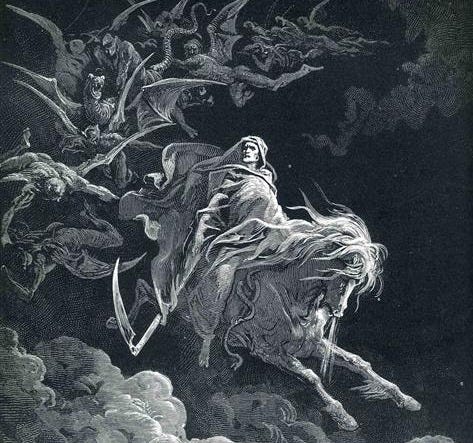The Art of Dying
As humans, we're aware of our eventual death. Psychologist Rollo May noted that all people must find meaning in life while facing the reality of approaching death. May believed this conflict could lead to either a negative anxiety that hinders living, or a positive anxiety that motivates us to lead meaningful lives.
This essay explores French humanist Michel de Montaigne's views on death. At 39, Montaigne retired to his castle and wrote influential essays on life, knowledge, and death. His perspective on death and our response to it is intriguing. Montaigne's attitude toward death was inspired by Roman philosopher Cicero, who wrote, "to study philosophy is nothing but to prepare one's self to die." This concept traces back to Socrates.
“Ordinary people seem not to realize that those who really apply themselves in the right way to philosophy are directly and of their own accord preparing themselves for dying and death.”
― Socrates
According to Cicero, philosophy prepares us for death because study and contemplation separate the soul from the body, serving as a practice run for death. In an essay titled "That to Study Philosophy is to Learn to Die," Montaigne wrote:
“All the wisdom and reasoning in the world do in the end conclude in this point, to teach us not to fear to die.”
— Michel de Montaigne, That to Study Philosophy is to Learn to Die
Many philosophers have argued that we all seek pleasure, though our methods differ. Pleasure offers a temporary mental escape from thoughts of death. While death can end all our troubles at will, if death itself is troubling, there's no consolation, as it's unavoidable.
“We are all bound one voyage; the lot of all, sooner or later, is to come out of the urn. All must to eternal exile sail away.”
—Horace, The Odes, Book II. 3, 25.
If we knew the exact moment and manner of our death, life would become unbearable. In Montaigne's era, criminals were sometimes executed at the scene of their crime. En route, they'd be taken to luxurious houses and treated to lavish entertainment. While intended as consolation, this likely felt more like torture.
Keep reading with a 7-day free trial
Subscribe to The Machiavellians’ Substack to keep reading this post and get 7 days of free access to the full post archives.




